Table of Contents
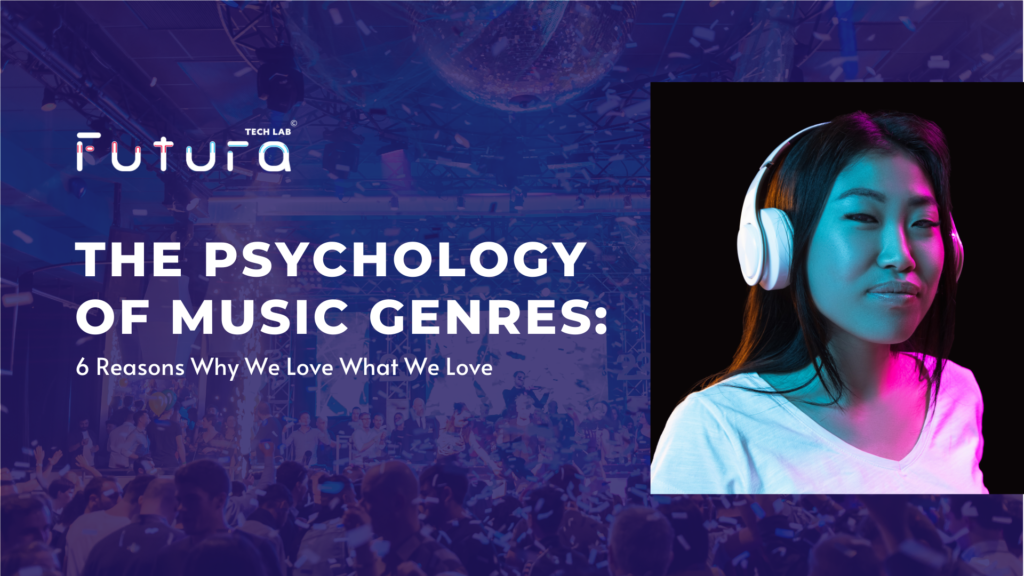
Humans are complex, so shouldn’t music be too?
Only the psychology of music genres can explain why I could be in the mood for some R&B today and prefer to listen to house music tomorrow.
Just like we have different emotions, each feeling corresponds to a different type of music.
What worked yesterday may not work today, and what works today may not work tomorrow.
Music, the universal language, speaks to each of us in unique dialects. It speaks for us when our words fail us. It motivates us when we have no energy or inspiration to drive ourselves and calms us when we don’t know how to do it.
But what inspires one person irritates the other. We gravitate towards specific genres and have no idea why we love what we love.
Is it our biology?
Is it based on how we feel or even the weather?
Let’s explore the psychology behind music genres and what makes us like some genres and dislike others.
1. Musical roots: what we listened to during our teens

It starts with your childhood. Exposure to certain music during your childhood leaves an indelible mark.
One study revealed that the music we listen to during the adolescent stage helped create our musical taste and identity, i.e., music released during the ages of 12 to 22 years.
Familiar melodies become comfort blankets, evoking warm memories and a sense of belonging.
This explains why hits of our youth hold a special place in our hearts, even if we wouldn’t admit it to anyone under 30 (shush!).
For me, it’s the 80’s of Lionel Richie and Whitney Houston, the unforgettable R&B, hip-hop and pop music from the ’90s – TLC, Backstreet Boys, 2Pac, SWV, and Mariah Carey, and more R&B, hip-hop, pop and alternative rock from the 2000s – Eminem, Nelly, Rihanna, Chris Brown, Destiny’s Child, 50 Cent, Evanescence, Breaking Benjamin, Linkin Park and Ne-Yo to name a few out of a list that is way too long.
2. Environment & place: Where we grew up impacts what we listen to

Our environments – where we grew up, also shape our musical tastes.
One study found that our past and present environments impact the music we listen to in the long term.
The author stated that our musical tastes change over time but reflect more towards our past environment, especially our adolescent period; both the timing and geographical location of an adolescent shapes their musical identity.
64% of individuals who moved between US states had musical tastes similar to their previous environment.
from Environmental Changes and the Dynamics of Musical Identity
However, it had little impact on expanding their tastes.
3. Big 5 personality traits & MUSIC preference model
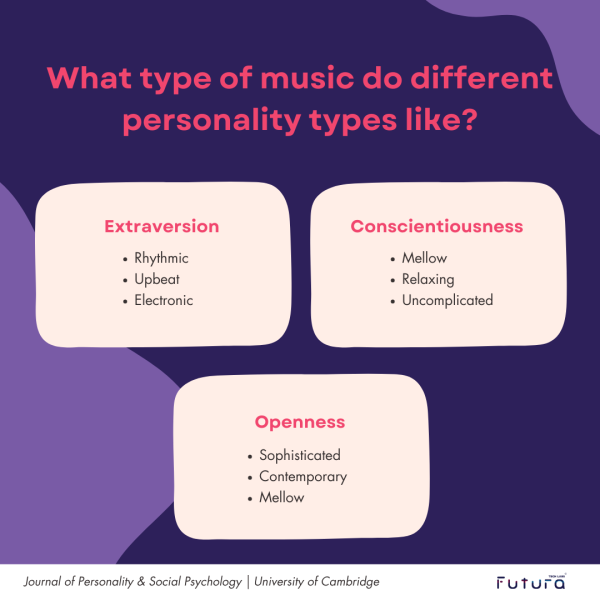
When we say music is a universal language, we mean that we may come from different countries, speak varied languages, and follow unique cultures, and yet music has no boundaries.
It doesn’t require people to know a language to feel and enjoy music, embodying who we are in a 3-minute song.
And you’re not alone. Millions of people listen to the same song and feel the same way.
Is this surprising or just ordinary?
One study revealed a positive association between the big five personality types and music preferences known as the MUSIC preference model (Mellow, Unpretentious, Sophisticated, Intense and Contemporary) across the globe.
Those who relate to the conscientiousness trait, i.e., organised, responsible, and hard-working, prefer mellow, romantic, relaxing, and uncomplicated music over intense music styles, such as distorted, aggressive, and loud music.
Others who tend to have the openness trait, i.e., imaginative, creative, and insightful, prefer sophisticated, intense, contemporary, and mellow music.
4. Similarity & Belonging: the connection between artists & personality characteristics
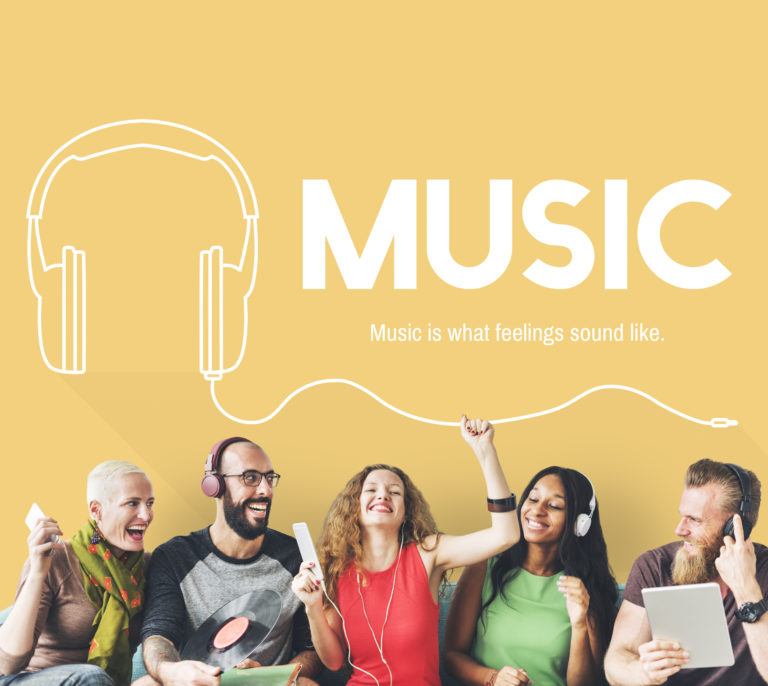
Have you ever wondered why you like some artists more than others?
One study revealed that we tend to like artists who are more similar to us psychologically; there is a relation between the artists’ persona and the fans’ personality.
The study further emphasises that the music genres we like and the artists we identify with help us find other like-minded people and give us a sense of group belonging.
5. Type E vs Type S: the link between cognitive types & music preferences
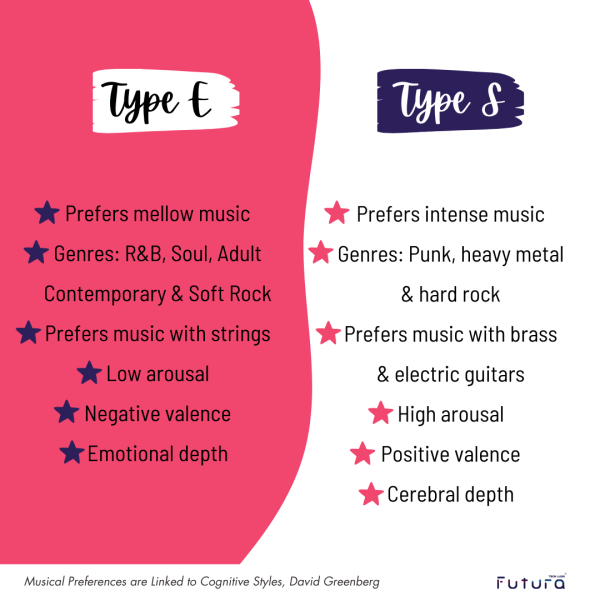
Our thought patterns also play a role in how we perceive music. Empathising people or Type E prefer listening to mellow music, consisting of R&B, soul, adult, contemporary and soft rock genres, with a preference for low arousal, negative valence, and emotional depth.
They further prefer music with strings.
On the other hand, systemising people or Type S prefer intense music consisting of punk, heavy metal, and hard rock genres, with a preference for high arousal, positive valence, and cerebral depth.
They further prefer music that features brass and electric guitars.
6. Emotional rollercoaster: positive & negative emotion regulation
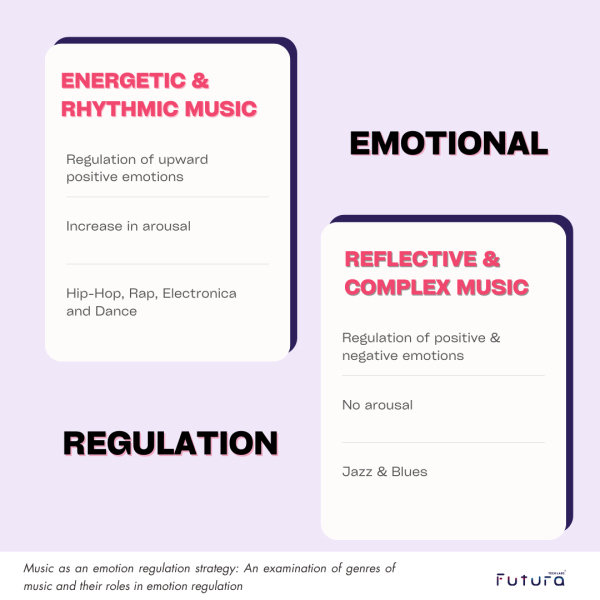
Music genres have superpowers – they manipulate and help regulate our emotions.
Uplifting pop choruses chase away blues, melancholic ballads elicit cathartic tears, and the pounding energy of metal ignites a fire in our bellies.
One study showed that energetic and rhythmic music correlates with regulating upward positive emotions and increasing arousal; there is a significant increase in arousal for genres like Hip-Hop, Rap, Electronica and Dance.
Under this type of music, Soul/Funk music genres are the only reported instances where downward negative emotions work.
Reflective and complex music for music genres like Jazz and the Blues was reported to influence the regulation of positive and negative emotions but not arousal.
We use music as a tool for self-expression and a way to help us regulate different emotions – a safe space to explore every nook and cranny of our emotional landscape.
It's more than music.
So, the next time you find yourself headbanging to heavy metal or swaying to a soulful serenade, remember it’s more than just the music.
The psychology of music genres states that the music we listen to is a reflection of who we are, a window into our emotional world, and a testament to the universal language that transcends words, uniting us through the magic of sound.
Now, tell me: what tune stirs your soul? What genre speaks to your heart?
Share your musical story in the comments below, and let’s turn this blog post into a global jam session.
